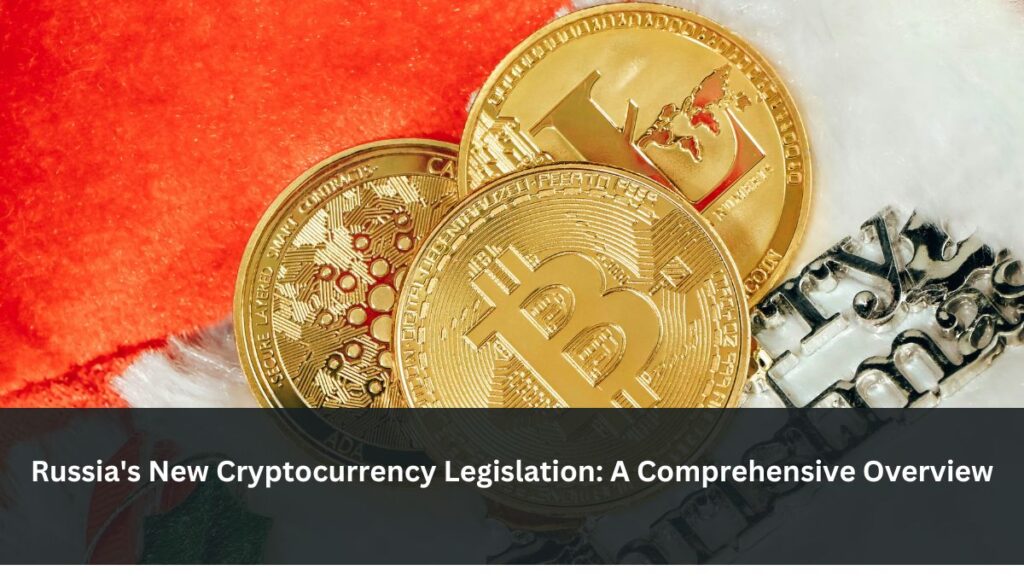Russia’s lower house of the Federal Assembly, the State Duma, passed two landmark laws pertaining to cryptocurrency. This marks a significant shift in the country’s approach to digital currencies. The new legislation, reported by Ria Novosti and CoinDesk, introduces comprehensive regulations for cryptocurrency mining and establishes a novel experimental framework for digital currency transactions. This article delves into the details of these laws, their implications, and what they mean for the future of cryptocurrency in Russia.
Legalization of Cryptocurrency Mining
Overview of the Mining Law
Effective November 1, 2024, Russia will officially legalize cryptocurrency mining. This law represents a major step forward in the country’s stance on digital currencies. According to the legislation, both legal entities and individual entrepreneurs who are registered with the Ministry of Digital Development will be permitted to mine cryptocurrencies. This move aims to integrate mining operations into the formal economy and ensure that they adhere to national regulations.
Regulations and Oversight
Under the new law, mining activities will be subject to oversight by multiple institutions, with the Bank of Russia playing a central role. The cabinet of ministers will establish specific requirements for mining infrastructure operators, while the Bank of Russia will have overarching authority to regulate these activities. This includes the power to introduce bans or restrictions on digital currency transactions to safeguard Russia’s monetary stability.
Interestingly, individuals and entities not registered with the Ministry of Digital Development may still engage in mining, but only if their operations do not exceed prescribed energy consumption limits. This provision appears designed to accommodate smaller-scale miners while ensuring that larger operations are subject to stricter oversight.
Additionally, miners will be required to report the digital currency they obtain to a government-authorized body. This transparency measure is intended to facilitate regulatory compliance and prevent illicit activities.
Restrictions on Cryptocurrency Promotion
The law also imposes a ban on the advertising of cryptocurrencies and their promotion to the general public. This regulation aims to mitigate the risk of speculative bubbles and protect consumers from potentially misleading information. By curbing unrestricted promotional activities, the government seeks to maintain a controlled environment for digital currency engagement.
Experimental Framework for Digital Currency Transactions
Introduction of the Experimental Regime
The second piece of legislation, set to take effect on September 1, 2024, introduces an experimental regime for digital currency transactions. This law grants the Bank of Russia the authority to permit selected companies to engage in cross-border settlements and exchange trading using digital currencies. This experimental framework is designed to explore the practical applications of digital currencies in international trade and financial transactions.
Scope of the Experimentation
Under this regime, companies, exchanges, and crypto entities must apply to the Bank of Russia to participate in the experimental program. The Bank of Russia will oversee three key areas of experimentation:
1. Cross-Border Settlements: Testing the use of cryptocurrencies for international trade transactions.
2. Exchange Trading: Allowing the trading of digital currencies on exchanges within the experimental framework.
3. Electronic Platform Development: Creating a new electronic platform for cryptocurrency operations based on the National Payment System (NPS).
Anti Danilevski, CEO of Kick Ecosystem, highlighted that this initiative represents a significant opportunity for Russia to position itself as a leader in the development of digital currency infrastructure. The experimental regime is expected to provide valuable insights into the viability and benefits of integrating digital currencies into traditional financial systems.
Implications for the Cryptocurrency Market
The introduction of this experimental regime could have far-reaching implications for the global cryptocurrency market. By testing the use of digital currencies in various financial scenarios, Russia aims to gather empirical data that could influence future regulatory approaches and international standards. The outcomes of these experiments may also impact how other nations approach digital currency regulation and integration.
Russia’s recent legislative developments signify a notable shift in its approach to cryptocurrency. By legalizing mining and establishing a framework for experimental digital currency transactions, Russia is taking bold steps to integrate digital currencies into its economic and financial systems. These laws aim to regulate and monitor cryptocurrency activities while exploring new opportunities for digital currency applications.
As these laws come into effect, they will likely set a precedent for how other countries might approach cryptocurrency regulation. The global financial community will be closely watching Russia’s experiments with digital currencies, as the results could shape future regulatory frameworks and market practices worldwide.
For individuals and businesses involved in cryptocurrency, staying informed about these changes is crucial. Whether you are a miner, a crypto enthusiast, or a business looking to explore digital currencies, understanding the implications of these new laws will be essential for navigating the evolving landscape of digital finance.

